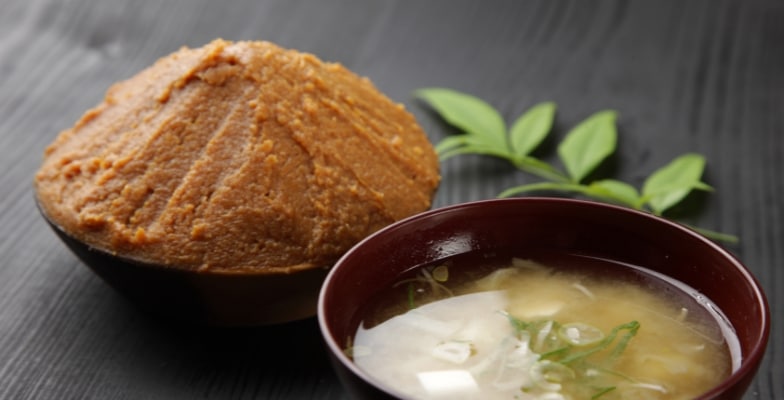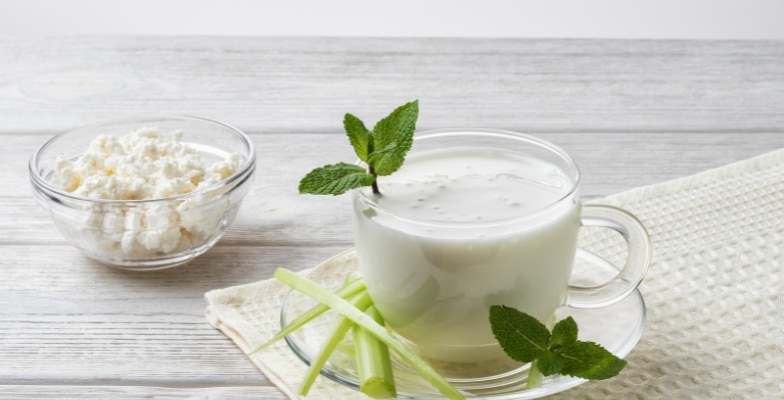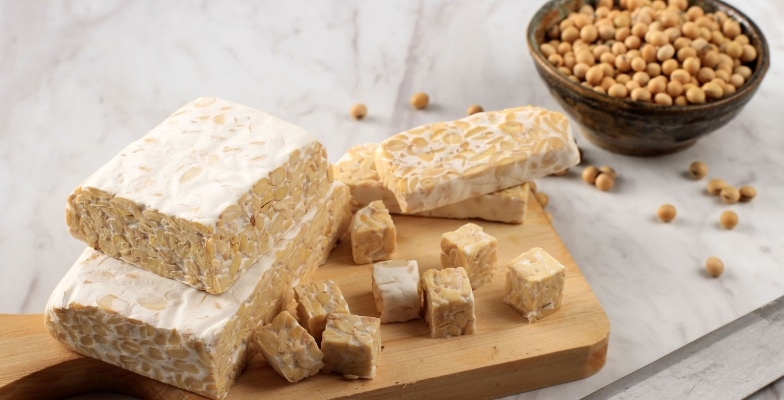Are Pickles Good For Your Diet
- Introduction
- Are Pickles Good For A Diet?
- Pickles And Gut Health
- Pickle Juice Health Benefits
- How To Can Pickles At Home
- Are Pickles Unhealthy?

Introduction
Thin-sliced, slid into a sandwich or burger patty, and sometimes served on the side. Yes, I am talking about crunchy, tangy flavourful pickles. If you love pickles, you know what I am talking about. But are these salty and sour stalks good for you? Let’s find out.
Pickling is an ancient gastronomic art of preserving food in brine and sometimes vinegar of several food items like vegetables, fruits, fish and meats. Pickling has been a natural process in societies and cultures worldwide. 1https://www.sciencedirect.com/science/article/pii/S175646462030195X#b0150
Pickling imparts unique and desirable changes in flavor, texture and color that take place over time in fermented pickles. microorganisms (mainly lactic acid bacteria, Micrococcaceae, bacilli, yeasts, and filamentous fungi) usually cover the vegetable’s skin, ferment them and play a crucial role in the pickling of food items while influencing the quality and welfare of the end product. 2https://www.researchgate.net/publication/341040947_Traditionally_fermented_pickles_How_the_microbial_diversity_associated_with_their_nutritional_a
Before we begin, here is a note for our readers:
Pickles must be consumed in moderation (they may have a good amount of sodium), especially if you have any pre-existing health conditions.
Are Pickles Good For A Diet?
Pickles are generally of 2 types: Fermented and regular. Both pickle processes use a brine of water and salt.
Fermented pickles are usually packed in airtight jars with a brine of salt and water and then left to sit at room temperature for a long time. A chemical reaction between bacteria and the natural sugars in the food creates lactic acid, which keeps the pickles fresher for longer.
We mostly see regular pickles in the grocery store, made via fresh-pack pickling by adding vinegar and spices to the brine, making them sour. These pickles are not fermented and hence lack the extra dose of probiotics.
Let’s look at the nutritional contents of fermented pickles:
Probiotics
They are nutritionally superior, fat-free and a good source of probiotics. Probiotics protect our gut microbiome or the bacteria in the gut as they add beneficial bacteria strains to the GI tract. 3https://pubmed.ncbi.nlm.nih.gov/15481739/ , 4https://www.sciencedirect.com/science/article/pii/S175646462030195X#b0150
Related Articles: Probiotics For Gut Health | 9 Probiotics-Rich Foods
Antioxidants
They are a good source of nutritional and bioactive components (proteins and amino acids) and antioxidants (flavonoids, phenols, and sterols). These powerful chemicals may protect our cells against free radicals or molecules associated with cancer, heart disease and other diseases. 5https://www.sciencedirect.com/science/article/pii/S175646462030195X#b0150, 6https://www.nccih.nih.gov/health/antioxidants-in-depth
Fiber
Vegetables are a good source of fiber that offer multiple health benefits, including helping waste products move through your system. Pickles are high in particular types of fiber that feed beneficial gut bacteria, acting as prebiotics (food for the probiotic gut bacteria).
Related Article: What Is Fiber? Health Benefits, Food Sources And Daily Requirements
Vitamin A
Pickles are good sources of beta carotene, which our body converts to vitamin A (a mighty antioxidant for vision and cell health). Carotene is a potent compound shown to help lower the chances of dying of heart disease, stroke, cancer, respiratory diseases, and other conditions.
Pickles And Gut Health
Fermented pickles act like probiotics, protecting the body’s microbiome and assisting in the growth of healthy bacteria in the gut. These bacteria help the body digest and absorb food and may prevent yeast infections.
They also help with diarrhea and constipation and potentially aid the treatment of chronic stomach health issues, such as Crohn’s disease. A healthy gut microbiome is also linked with better brain health.
While there may be a few reasons to eat a pickle, there are claims that pickle juice may enhance health, especially the gut. Here’s what pickle juice can do to our bodies.
Pickle Juice Health Benefits
Pickle juice is water and vinegar infused with cucumbers and some spices. Typically people eat cucumbers and throw away leftover juice. But in recent times, pickle juice has recently become popular, claiming it has several health benefits.
As a result, many sports drinks, slushies, beverages and others include pickle juice because of its alleged health benefits. Here are a few of them:
Assists Sportsmen/Athletes
Some athletes swear by pickle juice after exercise to quickly replace lost electrolytes. Some research supports the idea that the vinegar in pickle juice may help with muscle cramping. 7https://pubmed.ncbi.nlm.nih.gov/19997012/
It May Help In Controlling Blood Sugar
Studies suggest that drinking vinegar may improve the body’s response to insulin, a hormone controlling blood sugar levels. Preventing blood glucose spikes is also critical to the health of people with diabetes. 8https://www.hindawi.com/journals/jdr/2015/175204/, 9https://www.sciencedirect.com/science/article/abs/pii/S1756464613001874
Helps Gut Health
Fermented pickles and their juice consisting of vinegar are full of good bacteria called probiotics, which encourage the growth and balance of good bacteria in the gut.
It May Help With Electrolyte Balance
Pickle juice also assists those following a ketogenic diet who might need more sodium to manage electrolyte balance. Electrolytes are salts that the body needs for healthy functioning.
When a person experiences dehydration, they may also lose electrolytes. More research is necessary to determine the extent of the benefits and the safest amount of pickle juice to consume.
Preserves & Boosts Antioxidants
Cooking any food can break down heat-sensitive nutrients, including antioxidants. Pickling raw vegetables and fruits preserves their antioxidant power.
Knowing what is in them is essential to get the most benefits from pickles. One should look at the nutrition label and ensure they are fermented or probiotic, with lower sodium levels. To avoid these, it’s always better to pickle them at home.
How To Can Pickles At Home
We can pickle foods at home to preserve the seasonal produce we grow for their probiotic benefits. Today, one can pickle almost anything, depending on the texture, including vegetables, fruit, eggs, meat and fish.
The recipe we are sharing is fundamental, made with cucumbers. Please use your taste buds and imagination to create more and share with us.
Ingredients
-Cucumbers or any vegetable of your choice
-Water
-Salt
-Canning Jars
-Optional herbs like thyme, rosemary, garlic
Method
-Wash the vegetables clean
-Cut them into bite-sized pieces or desired shapes
-Place the canning jar on a kitchen weighing scale and weigh the veggies
-Fill the jar with plain drinking water. Note the weight
-Add the weight of vegetables and water. For 400g of vegetables and 200 ml of water, makes 600g
-Multiply 600 by 0.025 and add that amount of salt. In this case, 15g of salt.
-Make sure that everything is submerged under water; you can put some glass or other weight(not tin or metal) on top
-Close the lid
You can check once every two days to ensure everything stays underwater. The pickles will be ready within 5-7 days if kept within the temperature range of 60-75 degrees Fahrenheit or 15-24 degrees Celsius. A lower temperature will slow down the process, and a higher temperature will speed it up.
Are Pickles Unhealthy?
If you do it right and ferment them, then no.
Most of us realize that cooking any food can break down heat-sensitive nutrients, including antioxidants. But pickling raw vegetables and fruits can preserve their antioxidant power.
Naturally, fermented foods like pickles can give our body probiotics which are very important for our gut microbiome and can be a part of our healthy and nutritious daily dietary lifestyle.
Herbs and spices such as ginger, garlic, chili, basil, turmeric, peppercorn, and bay leaves can make the pickle even healthier by increasing the number of powerful phytonutrients, antioxidants and antimicrobials.

Skill-Based Education.
Global Recognition.
Powerful Community Building
Secure a certificate of completion in as little as a day by graduating from one of our free courses.
Get Access to Our Free Courses. No Credit Card Required.

Fabulous Body Membership
Your All-Access Pass to A Fabulous Body & A Rewarding Career
25+ Certificate Courses & Programs, All Included
15 Day Free Trial, 100% Money-Back Guarantee
About Team Fabulous Body
Team Fabulous Body is a group of individuals working as a part of Fabulous Body working to bring you great content that includes practical knowledge with well researched studies.










